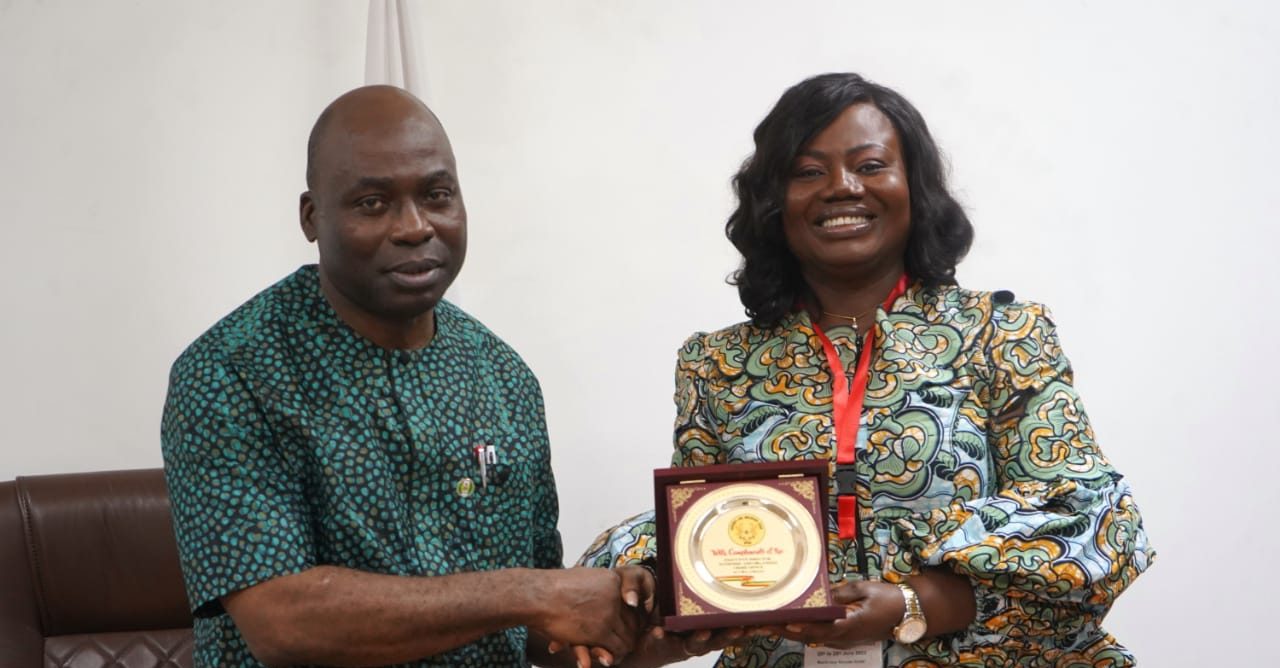The Chairman of the Independent Corrupt Practices and Other Related Offences Commission (ICPC), Professor Bolaji Owasanoye, SAN, OFR has noted that the political economy of international ecosystem was not designed for developing countries to progress in the fight against corruption.
The ICPC boss stated this when he hosted a delegation of Economic and Organised Crime Office of Ghana who were on a tour of the Commission’s facilities recently.
Professor Owasanoye, who harped on the importance of collaboration and exchange of ideas amongst anti-corruption agencies in developing countries noted that the rules of engagement set by the international ecosystem do not in any way favour the peculiarities associated with anti-corruption fight in developing countries hence the need to adopt home-grown approaches.
He said “we have to understand as developing countries that the political economy of international ecosystem is not designed for us to progress no matter how hard we try. It is enlightened self-interest. For example, Nigeria borrowed one billion dollars in 1978. As at 2006, when we had the write-off, Nigeria was owing 32 billion dollars and it is designed in that way because of their rules of engagement and dispute resolution. The rule uses IMF and the World Bank to whip you into line when you want to challenge the debt.
“How many countries have taken the World Bank to court? Does it not have failed loans? Many of the loans World Bank grant are marred in corruption but nobody has the courage to take them to court because those issues are usually politically determined”.
The ICPC boss also decried how developing countries get swayed by outcomes of international surveys saying it was wrong to use perception survey to compare experience survey.
“In developing countries, we are driven by the outcomes and report of international surveys. International surveys are not innocent, and it is naïve to think they are otherwise. If you do not create a system where your voice is heard, a kind of platform where you say your own and refuse to be driven by the outcome of those reports, you will continue to be apologetic.
“I was in Abidjan last year and I spoke in a panel that had representatives from Transparency International and I told them it is wrong to use perception survey to compare experience survey, it is like comparing sleep with death.
“Is it not strange that Transparency International will rank countries that are losing assets as more corrupt than the countries receiving the stolen properties? And under the common law, both the thief and the receiver of stolen properties are both guilty. But when they rate us, they will rate the receiving countries as being more honest but those of us whose properties are stolen everyday are rated to be more corrupt”.
Professor Owasanoye also advocated for local surveys on corruption where home-grown solutions would be used to address them as against the international surveys being used to form opinions on corruption perception in developing countries.
“We must have home-grown approach because it makes our work easier. We try to do our own survey where we talk to people, document and publish it so that when someone throws TI’s index to my face, I will tell them I have my own survey before you form an opinion”.
Earlier in her address, the Commissioner of Police and Executive Director of Economic and Organized Crime Office (EOCO) Ghana, Mrs Yaa Tiwa Addo-Danquah, stated that the purpose of visiting ICPC was to build on existing relationship and explore areas of collaboration.
“We realise that we have a lot of things in common and we believe we can learn from ICPC and you will probably also learn from us. We can also explore areas of collaboration and work together. There are a lot of Nigerians in Ghana, and I can also say we have many Ghanaians here. Now that the World has become a global village, people can sit in the comfort of their homes and commit crimes whereas some of the evidence are held in other jurisdiction so it is important that we work together,” she said.

